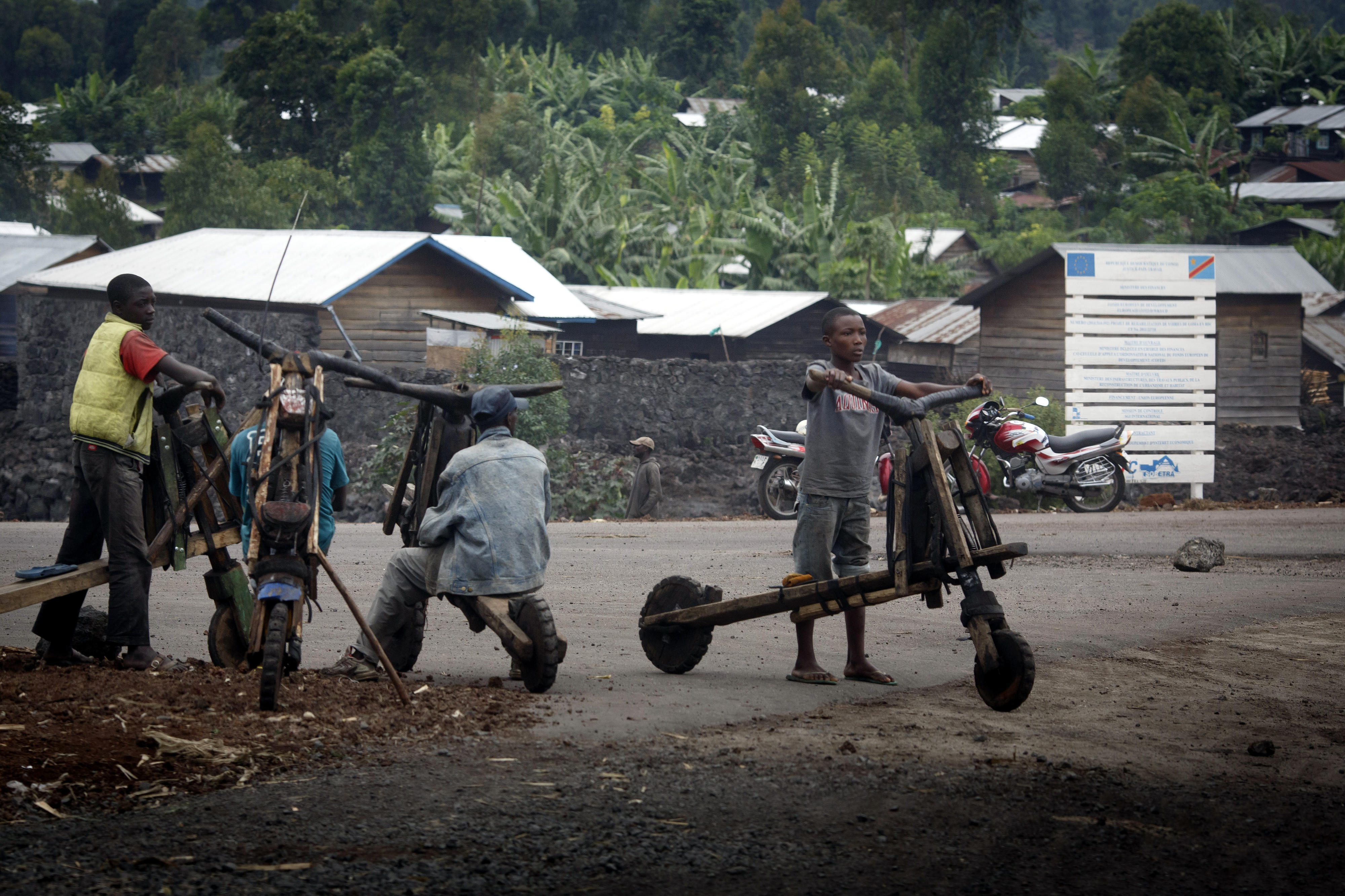Men with so-called chukudus (freight scooters) in Goma, DR Congo
Copyright© Ute Grabowsky/photothek.net
Economic situation
Economic challenges despite a wealth of raw materials
The DR Congo is facing structural challenges that are curbing its economic potential. They include political instability, a lack of legal certainty, widespread corruption and weak bureaucratic structures. Other negative factors include infrastructure deficits, a huge shortage of well-trained workers and a high level of dependence on exporting raw materials, making economic diversification difficult and putting off potential investors.
The most important economic sectors are agriculture and mining. The country has rich deposits of extractive and mineral resources, including cobalt, copper, zinc, silver, diamonds, germanium and uranium, and also what are often referred to as “conflict” minerals: tin, tantalum/coltan, tungsten and gold. International demand for coltan and cobalt in particular is very high, since they are used in the manufacture of mobile phones, laptops and electric cars. The DR Congo’s share in the global extraction of cobalt was roughly 69 per cent at the end of 2024. The Congolese economy is therefore highly dependent on world market prices for minerals and on foreign companies which operate most of the mines in the country. No consideration is given to existing protected areas or the land rights of the people when new mining areas are designated.
The main area where jobs are created for the local population is informal, manual small-scale mining. The mines, many of which are operated illegally, have significant deficits when it comes to occupational safety and compliance with human rights and social standards. Miners lack safety equipment. Child labour and forced labour are still very common. The women working in this sector are frequently exposed to (sexual) violence and are unable to enforce their rights. In order to ensure that the trade in commodities is conducted lawfully and sustainably and that revenues are used transparently, the Congolese government has signed up to the Extractive Industries Transparency Initiative (EITI). This is supported by German development cooperation.
In recent years, the DR Congo has increasingly entered into strategic cooperation arrangements with international partners and initiatives, such as its cooperation with the EU as part of Team Europe and the Global Gateway. Furthermore, the Congolese government has been renegotiating commodities contracts and wants to promote sustainable value chains and local further processing of commodities, as well as improving the business climate, in order to boost its own economy and foster international private investment.
As at: 26/11/2025
